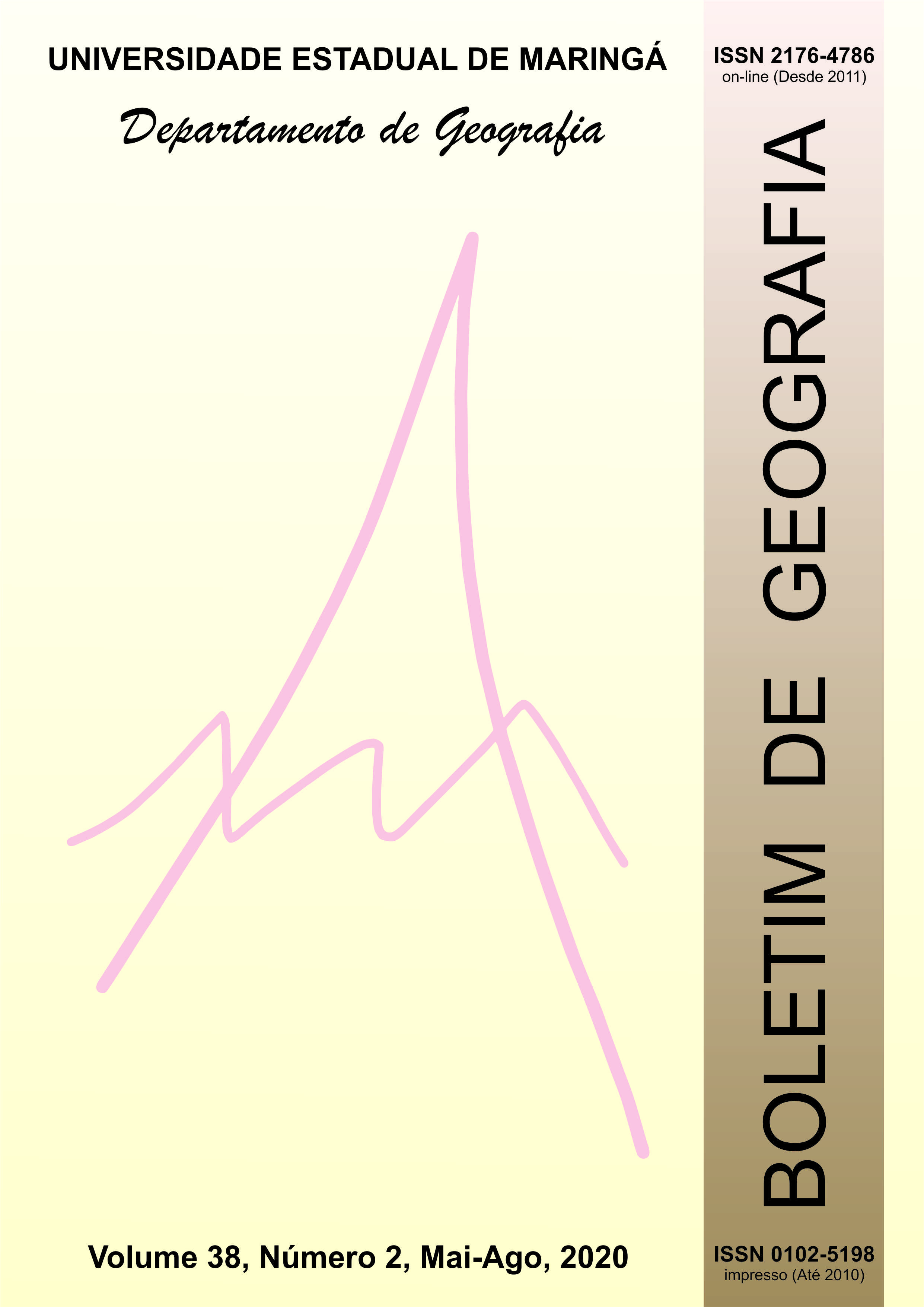Some notes on the notion on the nature instituted by the set of knowledge in the Ancient and Medieval Ages
Abstract
This article addresses the geographical scope through the concept of nature and, it aims to analyze the relation between the epistemological concepts and cosmovision, instituted by the man, in ancient and medieval ages. This task refers to a scientific, philosophical and artistic itinerary, strictly connected to the progress of the Western civilization. The main characteristic of the Ancient and Medieval knowledge are to be emphasized, thus defending that the invisible, immaterial and sacred semblants, qualitative attributes of those eras, result from the elaboration of the metaphysical mythical and allegorical sets elaborated by the thinkers who lived and dedicated themselves, intellectually, on those historical moments. The main philosophical systems in Antiquity, from Aristotle to Plato, as the sets of thoughts from Saint Thomas Aquinas and Saint Augustine, meaningful thinkers of the Medieval era, will be briefly analyzed in order to defend the qualitative, metaphysics and immaterial aspects of the cosmos. This work will present some important artistic representations to demonstrate some of the main aspects of the intrinsic nature to these historical periods. That is where the power of the human intellect lies. Through the interdisciplinary analysis, implicated by Geography, Philosophy and the History of Science, the work aims to bind very important themes of the Geographical Science to broader parameters, conforming an analysis and an efficient and necessary discourse for the promoted debate on the university environment.
Downloads
O Boletim de Geografia está licenciado através da Creative Commons Atribuição 4.0 Internacional (CC BY 4.0).
Autores que realizam submissões ao Boletim de Geografia concordam com os sequintes termos:
- Autores retêm todos os direitos autorais e concedem à Revista direitos exclusivos da primeira publicação, com o artigo licenciado sob os termos da Creative Commons Atribuição 4.0 Internacional (CC BY 4.0).
- Após a publicação, fica permitido ao autor a republicação em qualquer outros meios de divulgação, desde que mencionada a fonte original.












